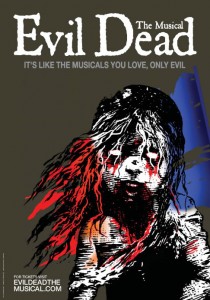I sat down to be productive today, and got distracted by this thing from the New York Times, a short essay contest asking readers to articulate why it’s ethical to eat meat. Being an omnivore, I decided to crack out some of the old debate team skills, and lay out a semi-convincing reason as to why I like putting the dead bodies of other vertebrates in my mouth. I don’t love this little essay, but stuff like this is why, for a brief time, I thought I was going to be a lawyer.
This was my submission:
It is ethical to eat animals. It can be ethical to kill animals. It is not ethical, however, to make animals suffer. An action is unethical only if it causes others to suffer. If eating meat can be done without suffering, then eating meat may be done ethically.
If you’re eating an animal, the act of eating it is not causing it to suffer. It is, in fact, dead, and as such cannot feel any pain or other negative feelings. The act of consumption imparts no sensation whatsoever to the animal involved.
There is nothing about eating animals that necessitates animals suffering during their lifetimes. It is true that domesticated animals can be raised in appalling conditions. However, it is also true that domesticated animals can be raised in agreeable conditions. Nothing about the act of meat consumption inherently and necessarily means that said animal had a lifetime of suffering. Therefore, eating meat cannot be inherently linked to a lifetime of suffering on the animal’s part.
So, the animal feels no suffering after death (one of the perks of being dead) and is not necessarily consigned to a lifetime of suffering. The vast period of time both before the animal’s death and after it can easily be (and often are) suffering-free. That leaves us only with the moment of death.
Death can obviously be painful and entail suffering on the part of the animal. However, suffering can be disassociated from the animal’s death. Animals cannot anticipate as humans do. They do not know they are going to die, and domesticated animals are not capable of experiencing stress or anticipating their own end. Therefore, they do not experience any suffering associated with dread, fear, stress, or emotions that humans do. Because mental suffering is a nonissue, that leaves only physical suffering.
If an animal is killed quickly and cleanly enough (and we have the means to do precisely that) then it will die instantly and not linger in any kind of physical pain. What’s more, a quick, painless death can relieve an animal from physical suffering later. An animal killed instantly will never suffer because of disease, a decaying body, or violence from wild predators. It will never hobble on arthritic limbs, know the ravages of aged lungs, or be ripped apart by wolves. Living within an ethical domestic environment can allow the animal to in fact experience less total suffering over the course of its existence than it otherwise would.
So, the act of eating does not cause suffering. The act of raising animals does not inherently entail suffering. The act of killing an animal can be performed without suffering. Therefore, humans may consume animals in an ethical fashion. If those prerequisites can be met, then eating meat may be done entirely ethically.


